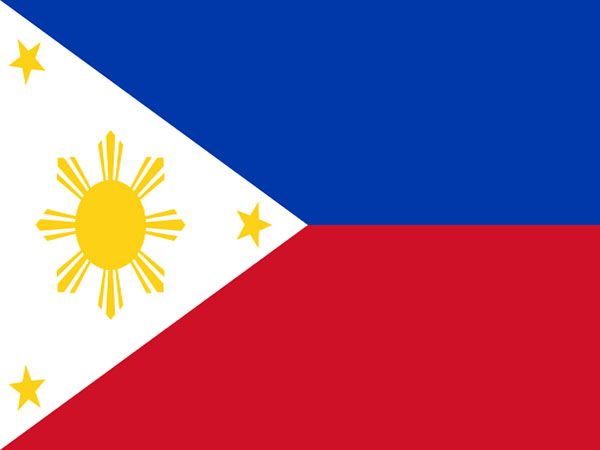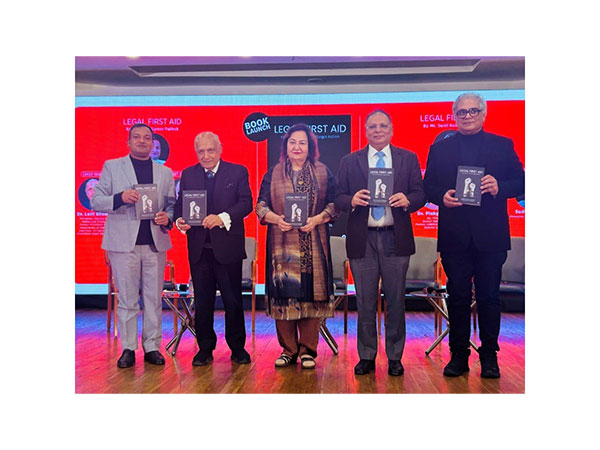
Historic military handshake between Japan and the Philippines
Jul 10, 2024
Manila [Philippines], July 10: Recently, in Manila (Philippines), Philippine Defense Minister Gilberto Teodoro and Japanese Foreign Minister Yoko Kamikawa signed the Reciprocal Access Agreement (RAA).
This is a landmark military pact that allows the two countries to deploy military forces on each other's territory. The RAA also facilitates the import of equipment and troops for combat training and disaster response, facilitating military cooperation between Manila and Tokyo.
The RAA is a new step in defense cooperation between the two countries after a series of recent moves. In late 2023, The Inquirer reported that Japan had transferred its first long-range surveillance radar system to the Philippine Air Force.
The news came as Japanese Prime Minister Fumio Kishida made an official visit to the Philippines and announced aid to the host country. Speaking at the Philippine Congress during the visit, Prime Minister Kishida emphasized that Japan, along with the US and the Philippines, are cooperating to protect freedom in the East Sea. That cooperation goes hand in hand with Tokyo's commitment to help Manila strengthen its security capabilities. The radars are expected to enhance Manila's surveillance capabilities to quickly detect and identify threats and intrusions in the Philippines' exclusive economic zone (EEZ).
Important Agreement
Responding to Thanh Nien yesterday, July 9, Dr. Satoru Nagao (Hudson Institute, USA) assessed: The fact that Japan and the Philippines reached the RAA agreement plays an important role in the current tense situation in the region. This is for the following reasons.
"Recently, China has escalated its activities in the region, especially the East Sea. In particular, China and the Philippines have been constantly tense in the Spratly Islands, and there have even been clashes between the two sides," Dr. Satoru Nagao pointed out and further analyzed: "In the context of escalating tensions, based on what happened in the Paracel or Spratly Islands before, for the Philippines, maintaining a military balance can help prevent violent, out-of-control acts. Meanwhile, through the rapid modernization process, China is now the country with the largest number of military ships in the world, so maintaining a military balance with this country is not simple."
"That is why, to ensure military balance, in the context of US resources for the region being affected by Washington's dispersion, the role of US allies and partners is very important for the Philippines. Not only the US but also Australia and Japan are deploying military forces around the Philippines. India also provides supersonic missiles to the Philippines. The RAA between Japan and the Philippines promotes increased coordination," Dr. Nagao analyzed. Typically, US, Australian and Japanese naval vessels will be more convenient to deploy ships in the East Sea when there is coordination with the Philippines.
Multi-party handshake
To put it simply, thanks to the RAA between Tokyo and Manila, along with similar bilateral military agreements between the US, Japan and the Philippines, forces between the countries will be able to coordinate and interact more easily.
Not stopping there, the US-Japan-Philippines alliance is also gradually becoming clearer. Last April, US President Joe Biden, Japanese Prime Minister Fumio Kishida and Philippine President Ferdinand Marcos Jr. held a trilateral summit at the White House. At the summit, the three leaders reached a number of agreements on inviting Philippine and Japanese coast guard members to board US coast guard ships for joint patrols in the Indo-Pacific. The US and the Philippines will establish a logistics center for humanitarian assistance and disaster relief at one of the nine Philippine military bases that the US has access to under the agreement between the two sides. The three countries also agreed to cooperate on telecommunications by developing a next-generation open radio access network (RAN) in the Philippines to enhance connectivity between telecommunications service providers.
Commenting on the above-mentioned trilateral agreement when answering Thanh Nien , Professor Stephen Robert Nagy (International Christian University - Japan, scholar at the Japan Institute of International Studies) assessed it as "a turning point in cooperation to push back China's efforts to increase its influence in the East Sea".
Not only the above trio but also Australia. On the sidelines of the Shangri-La Dialogue held in Singapore in 2023, US Secretary of Defense Lloyd Austin, Australian Deputy Prime Minister and Minister of Defense Richard Marles, Japanese Defense Minister and Philippine Defense Minister at that time, Hamada Yasukazu and Carlito Galvez, respectively, had talks. At the talks, the four ministers agreed to strengthen security cooperation to promote a free and open Indo-Pacific region. Since then, the two sides have continuously strengthened military cooperation.
Source: Thanh Nien Newspaper









